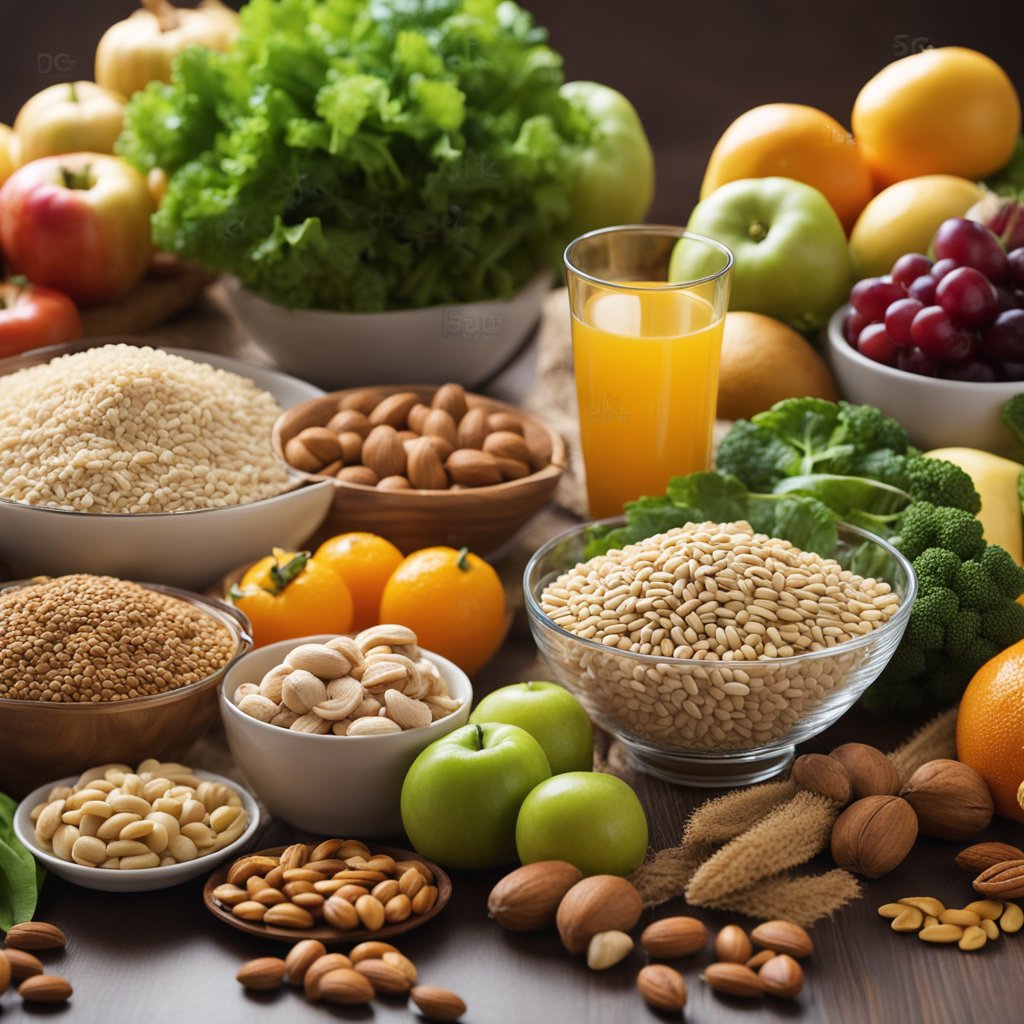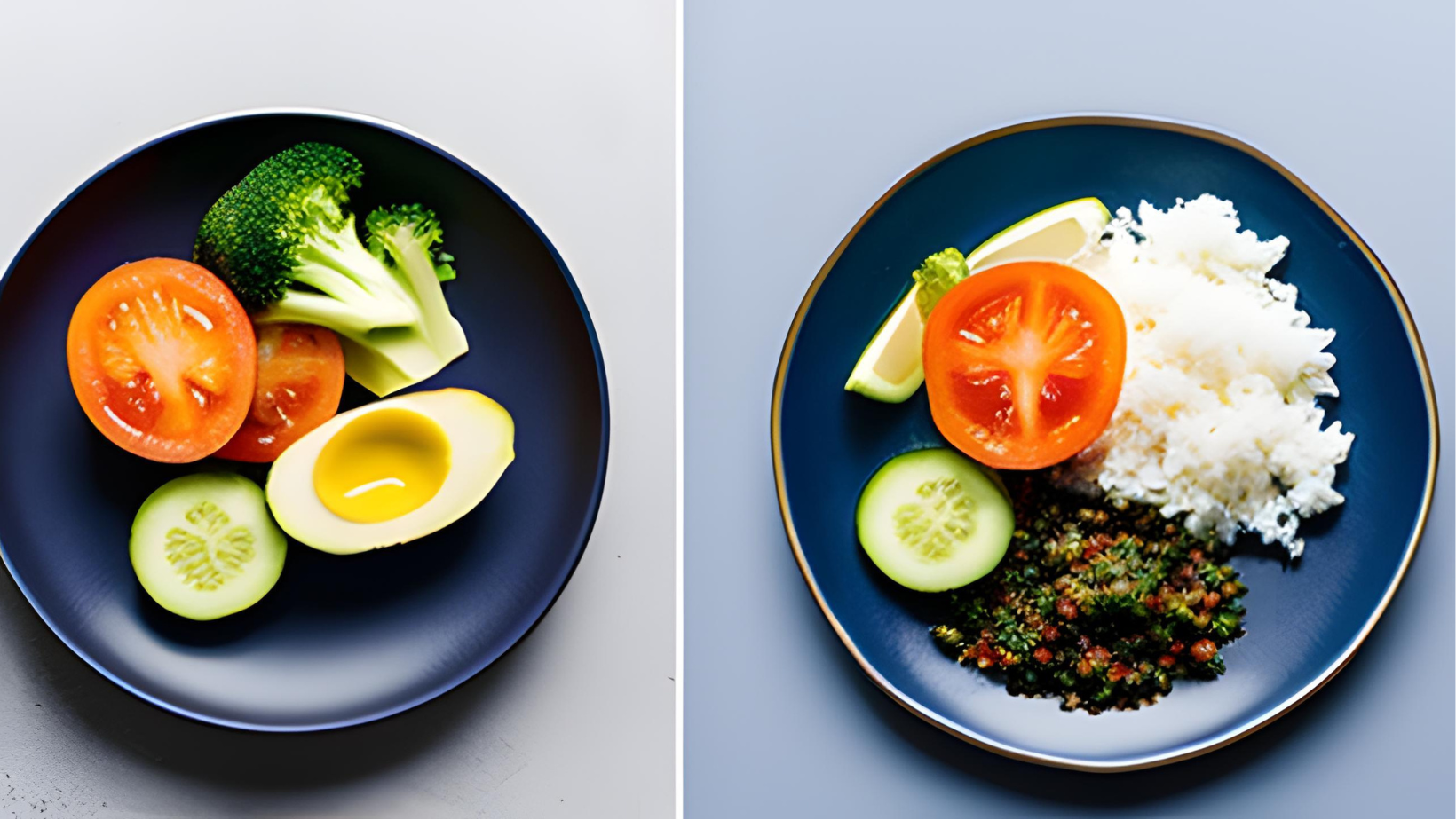Contents
Introduction
The Military Diet has gained widespread attention for its promise of rapid weight loss in a short period. Often touted as a quick fix for shedding a few pounds within days, it has become popular among individuals seeking immediate results. However, like any restrictive diet, the Military Diet comes with its share of side effects that can impact overall well-being. Understanding these side effects and knowing how to manage them is crucial for anyone considering embarking on this dietary regimen.
Understanding Military Diet Side Effects
While the Military Diet may yield noticeable weight loss results, it can also trigger various side effects due to its highly restrictive nature. Some of the common side effects include:
- Hunger Pangs: With its low-calorie intake, the Military Diet can leave individuals feeling hungry and deprived, especially during the first few days of the diet.
- Thirst: The diet’s emphasis on certain food combinations may lead to increased thirst, as some foods may have a dehydrating effect.
- Fatigue and Weakness: Severely limiting calorie intake can result in feelings of fatigue and weakness as the body adjusts to the reduced energy intake.
- Digestive Issues: Rapid changes in dietary habits and food types can cause digestive discomfort such as bloating, gas, and constipation.
- Mood Swings and Irritability: Fluctuations in blood sugar levels and hormonal changes due to drastic calorie reduction can lead to mood swings and irritability.
Understanding these side effects is essential for individuals considering the Military Diet, as it allows them to prepare mentally and physically for the challenges they may encounter during the dieting process. Additionally, knowing how to handle these side effects can help mitigate their impact and increase the likelihood of successfully completing the diet plan. In the following sections, we will explore practical strategies for managing each of these side effects effectively, enabling individuals to navigate the Military Diet with greater ease and confidence.
Understanding Military Diet Side Effects
The Military Diet, with its promise of rapid weight loss, can bring about several side effects that individuals may experience during their journey. It’s essential to understand these potential side effects to adequately prepare and address them, ensuring a smoother transition through the diet plan.
Hunger Pangs
One of the most common side effects of the Military Diet is hunger pangs, especially during the initial phase of calorie restriction. With its strict meal plan and limited calorie intake, individuals may experience increased feelings of hunger and deprivation. To handle hunger pangs effectively:
- Balanced meal planning: Incorporate a balance of lean proteins, healthy fats, and complex carbohydrates into each meal to promote satiety and prevent hunger.
- Incorporating high-fiber foods: Foods rich in fiber, such as fruits, vegetables, and whole grains, can help keep you feeling full for longer periods and prevent overeating.
- Drinking water and herbal tea: Staying hydrated can help curb hunger and cravings. Drinking water or herbal tea between meals can help fill you up and prevent excessive snacking.
By implementing these strategies, individuals can better manage hunger pangs while adhering to the Military Diet, making it easier to stick to the meal plan and achieve their weight loss goals.
Thirst
The Military Diet’s emphasis on specific food combinations may lead to increased thirst, as some foods may have a dehydrating effect on the body. To handle thirst while on the Military Diet:
- Importance of water intake: Stay hydrated by drinking plenty of water throughout the day. Aim to consume at least eight glasses of water daily to prevent dehydration.
- Consuming hydrating foods: Incorporate foods with high water content, such as cucumbers, watermelon, and soups, into your meals to boost hydration levels.
- Limiting caffeine intake: While caffeine-containing beverages like coffee and tea are allowed on the Military Diet, excessive consumption can contribute to dehydration. Limit caffeine intake and opt for decaffeinated options when possible.
By prioritizing hydration and making conscious choices about food and beverage consumption, individuals can effectively manage thirst while following the Military Diet.
Managing Hunger on the Military Diet
One of the primary challenges individuals encounter while following the Military Diet is coping with hunger pangs due to the significant calorie restriction. However, with strategic meal planning and mindful eating habits, hunger can be effectively managed, facilitating adherence to the diet plan and promoting successful weight loss outcomes.
Balanced Meal Planning
Creating well-balanced meals is paramount for preventing hunger on the Military Diet. By incorporating a combination of lean proteins, healthy fats, and complex carbohydrates into each meal, individuals can promote satiety and maintain stable energy levels throughout the day. Opt for nutrient-dense foods such as lean meats, fish, tofu, nuts, seeds, whole grains, and plenty of fruits and vegetables to ensure adequate nutrition while minimizing hunger cravings.
Incorporating High-Fiber Foods
Fiber-rich foods play a crucial role in managing hunger on the Military Diet. These foods take longer to digest, keeping individuals feeling full for extended periods and reducing the likelihood of overeating. Incorporate a variety of high-fiber options such as legumes, lentils, beans, broccoli, Brussels sprouts, oats, and quinoa into your meals to increase fiber intake and promote satiety. Additionally, consuming fiber-rich snacks like fruits, nuts, and seeds between meals can help curb hunger cravings and prevent excessive snacking.
Drinking Water and Herbal Tea
Staying adequately hydrated is essential for managing hunger while on the Military Diet. Drinking water throughout the day not only helps quench thirst but also helps fill the stomach, reducing feelings of hunger. Aim to consume at least eight glasses of water daily and consider incorporating herbal teas, such as green tea or chamomile tea, into your beverage choices. Herbal teas not only provide hydration but also offer various health benefits and can help suppress appetite, making them a valuable addition to the diet plan.
Mindful Eating Practices
In addition to strategic meal planning and hydration, practicing mindful eating can further aid in managing hunger on the Military Diet. Pay attention to hunger and fullness cues, eat slowly, and savor each bite to enhance satisfaction and prevent overeating. Avoid distractions such as television or electronic devices while eating, as they can lead to mindless eating and hinder awareness of food intake. By adopting mindful eating practices, individuals can foster a healthier relationship with food and better control hunger while on the Military Diet.
Incorporating these strategies into daily dietary practices can help individuals effectively manage hunger on the Military Diet, supporting their weight loss journey and promoting overall well-being.
Dealing with Thirst While on the Military Diet
Hydration is essential for overall health and well-being, especially while following a calorie-restricted diet like the Military Diet. However, certain food combinations and restrictions may lead to increased thirst, making it crucial to adopt strategies to stay adequately hydrated and manage thirst effectively.
Importance of Water Intake
Water is essential for numerous bodily functions, including digestion, nutrient absorption, and temperature regulation. While on the Military Diet, it’s vital to prioritize water intake to prevent dehydration and support optimal bodily function. Aim to consume at least eight glasses of water per day, and consider increasing intake if you engage in physical activity or experience excessive thirst. Keep a water bottle handy throughout the day as a reminder to drink regularly, and opt for water-rich foods like cucumbers, tomatoes, and watermelon to further boost hydration levels.
Consuming Hydrating Foods
In addition to plain water, incorporating hydrating foods into your meals and snacks can contribute to overall hydration levels while on the Military Diet. Fruits and vegetables with high water content, such as cucumbers, celery, oranges, and strawberries, not only provide essential nutrients but also contribute to fluid intake. Including these foods in your meal plan can help quench thirst and alleviate feelings of dehydration, especially during periods of increased physical activity or exposure to hot temperatures.
Limiting Caffeine Intake
While caffeine-containing beverages like coffee and tea are allowed on the Military Diet, excessive consumption can contribute to dehydration due to their diuretic effects. While moderate caffeine intake may not significantly impact hydration levels for most individuals, it’s essential to be mindful of consumption and limit intake if experiencing increased thirst or dehydration symptoms. Opt for decaffeinated options or herbal teas to reduce caffeine intake while still enjoying flavorful beverages that contribute to overall hydration.
Monitoring Hydration Status
Monitoring hydration status is crucial while on the Military Diet, as dehydration can negatively impact overall health and well-being. Pay attention to thirst cues and urine color, aiming for pale yellow urine as an indicator of adequate hydration. If urine appears dark yellow or amber, it may signal dehydration, and additional fluid intake is warranted. Additionally, individuals should be mindful of other signs of dehydration, such as dry mouth, fatigue, dizziness, and decreased urine output, and take proactive measures to address hydration needs promptly.
Overcoming Fatigue and Weakness
While the Military Diet may yield rapid weight loss results, the significant calorie restriction involved can lead to feelings of fatigue and weakness, particularly during the initial phases of the diet. Implementing strategies to combat these symptoms is crucial for maintaining energy levels and overall well-being throughout the dieting process.
Ensuring Adequate Sleep
Quality sleep plays a vital role in overall health and energy levels, especially while following a calorie-restricted diet like the Military Diet. Aim for seven to nine hours of uninterrupted sleep per night to support optimal rest and recovery. Establishing a regular sleep schedule, creating a relaxing bedtime routine, and optimizing sleep environment can help improve sleep quality and combat feelings of fatigue and weakness during the day.
Incorporating Nutrient-Dense Foods
Nutrient-dense foods provide essential vitamins, minerals, and antioxidants necessary for sustaining energy levels and combating fatigue while on the Military Diet. Prioritize foods rich in complex carbohydrates, lean proteins, healthy fats, and fiber to support sustained energy release throughout the day. Incorporate a variety of whole foods such as fruits, vegetables, whole grains, lean meats, fish, nuts, seeds, and legumes into your meals to ensure adequate nutrient intake and promote optimal energy levels.
Taking Short, Brisk Walks for Energy
Physical activity, even in moderate amounts, can help boost energy levels and combat feelings of fatigue and weakness while following the Military Diet. Incorporate short, brisk walks into your daily routine to increase blood flow, oxygenation, and endorphin release, all of which contribute to enhanced energy and mood. Aim for at least 30 minutes of moderate-intensity exercise most days of the week, choosing activities you enjoy and can sustain long term.
Managing Digestive Issues
Digestive discomfort is a common concern for individuals following the Military Diet, given its restrictive nature and rapid changes in dietary habits. Implementing strategies to manage digestive issues is essential for promoting overall comfort and well-being while adhering to the diet plan.
Eating Smaller, Frequent Meals
Consuming smaller, more frequent meals throughout the day can help alleviate digestive discomfort and prevent feelings of bloating and indigestion. Instead of sticking to three large meals, consider dividing your daily food intake into smaller, more manageable portions spread evenly throughout the day. This approach can help regulate digestion, minimize stomach upset, and promote a more comfortable eating experience while on the Military Diet.
Including Probiotic-Rich Foods
Incorporating probiotic-rich foods into your diet can support digestive health and alleviate symptoms of bloating, gas, and discomfort while following the Military Diet. Probiotics are beneficial bacteria that promote gut health by balancing the microbiota and improving digestion. Include fermented foods such as yogurt, kefir, sauerkraut, kimchi, and kombucha in your meal plan to introduce beneficial probiotics into your system and support overall digestive function.
Avoiding Processed and High-Fat Foods
Processed and high-fat foods can exacerbate digestive issues and contribute to discomfort while on the Military Diet. These foods are often difficult to digest and may lead to symptoms such as bloating, gas, and abdominal pain. To minimize digestive distress, prioritize whole, minimally processed foods and limit consumption of high-fat items such as fried foods, processed meats, and fatty snacks. Opt for lean proteins, whole grains, fruits, vegetables, and healthy fats to support optimal digestion and reduce the risk of digestive issues.
Coping with Mood Swings and Irritability
Maintaining emotional well-being is crucial while following the Military Diet, as drastic dietary changes can sometimes lead to mood swings and irritability. Implementing effective coping strategies can help individuals manage these emotions and maintain a positive outlook throughout their weight loss journey.
Practicing Relaxation Techniques
Engaging in relaxation techniques can help alleviate stress, reduce tension, and promote emotional balance while on the Military Diet. Techniques such as deep breathing exercises, meditation, and progressive muscle relaxation can help calm the mind and body, allowing individuals to better cope with stressors and regulate their mood. Incorporate these practices into your daily routine to promote relaxation and emotional well-being during the dieting process.
Engaging in Light Exercise
Physical activity is known to have mood-boosting effects and can help alleviate symptoms of irritability and mood swings while following the Military Diet. Engage in light exercise such as walking, yoga, or gentle stretching to release endorphins, the body’s natural feel-good chemicals, and improve mood. Aim for at least 30 minutes of moderate-intensity exercise most days of the week to reap the mood-enhancing benefits and support overall well-being during the diet plan.
Seeking Social Support
Maintaining connections with friends, family, or support groups can provide valuable emotional support and encouragement during the Military Diet. Share your experiences, challenges, and successes with trusted individuals who can offer empathy, understanding, and motivation. Additionally, seeking professional support from a therapist or counselor can help individuals develop coping strategies, manage stress, and navigate emotional challenges effectively while on the diet plan.

Prioritizing Self-Care
Maintaining a focus on self-care is essential while undertaking the Military Diet, as it ensures individuals prioritize their overall health and well-being throughout the weight loss journey. By implementing self-care practices, individuals can mitigate potential side effects, enhance their resilience, and foster a positive relationship with food and body.
Practicing Mindful Eating
Mindful eating involves being present and attentive while consuming meals, allowing individuals to tune into their body’s hunger and fullness cues and savor the eating experience. By practicing mindful eating, individuals can develop a greater awareness of their dietary choices, prevent overeating, and cultivate a more positive relationship with food. Take time to appreciate the flavors, textures, and aromas of each meal, and listen to your body’s signals to guide eating decisions.
Incorporating Enjoyable Activities
Incorporating enjoyable activities into daily routines can help alleviate stress, boost mood, and promote overall well-being while on the Military Diet. Engage in hobbies, interests, and leisure activities that bring joy and fulfillment, whether it’s spending time outdoors, pursuing creative endeavors, or connecting with loved ones. By prioritizing enjoyable activities, individuals can create balance in their lives and reduce the focus on food and weight, leading to a more sustainable approach to weight loss.
Practicing Positive Self-Talk
Positive self-talk involves replacing negative or self-critical thoughts with affirming and supportive language, promoting self-confidence, and enhancing resilience. While on the Military Diet, individuals may encounter challenges and setbacks, making it crucial to cultivate a compassionate and understanding inner dialogue. Practice self-compassion and acknowledge progress and effort, rather than focusing solely on outcomes. By practicing positive self-talk, individuals can build resilience, navigate obstacles, and maintain motivation throughout the dieting process.
Conclusion
Prioritizing self-care is essential for promoting overall health, well-being, and success while undertaking the Military Diet. By practicing mindful eating, incorporating enjoyable activities, and practicing positive self-talk, individuals can support their physical and emotional needs, mitigate potential side effects, and foster a sustainable approach to weight loss. Remember to prioritize self-care, listen to your body’s needs, and approach the dieting process with kindness and compassion for optimal results.


